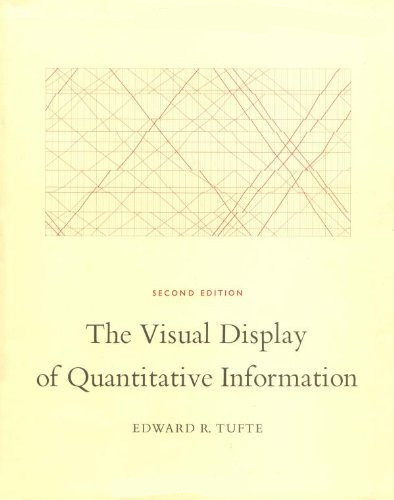The bible of data visualisation
4 stars
A short, enjoyable book about graphic design for the communication of (statistical) information. It is easy to get nostalgic for these "simpler" times when bias and distortion were thought as the main threats to truth. Tuften is a minimalist, and his principles are good to keep in mind, even if he can veer towards the austere. He probably would argue that when the data is interesting there is no need to spice it up, when the data isn't interesting there is no point in spicing it up.
The book offers some key principle for graphic integrity: maintain proportions between dimensions on paper and numbers; be generous with labelling; show data variations, do not vary design for aesthetic purposes; in time series with monetary values, account for inflation; associate every size-changing dimension to a variable (e.g. if a variable represented by rectangles doubles, only double either the width or the height); give context to interpret the data.
His theory of data graphics: Data ink is the ink that carries information. One should aim maximize the proportion of data ink to non-data ink, within reason.

